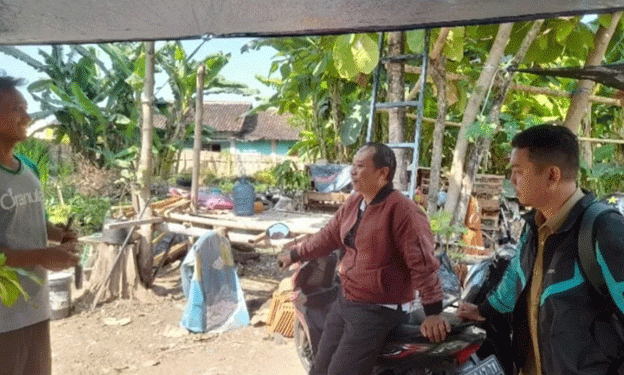In a groundbreaking initiative, UNS KKN Group 218 has developed an automated hydroponic system powered by solar energy, designed to enhance farming efficiency and sustainability. Installed in Trangsan Village, this system is poised to revolutionize how small farmers operate by addressing two critical challenges: limited arable land and restricted access to water.
Hydroponics is already recognized globally as a method to grow plants in nutrient-rich water without soil, and it’s particularly suited to regions like Indonesia, where urbanization and land scarcity are becoming pressing issues. However, the innovation introduced by UNS Group 218 goes a step further by incorporating solar energy and IoT (Internet of Things) automation. This not only reduces the need for human labor but also ensures a reliable, renewable energy source for the system’s continuous operation.
The Potential of IoT in Agriculture
The Internet of Things (IoT) allows real-time monitoring and control of farming systems, significantly increasing productivity and resource efficiency. In the case of the hydroponic system developed in Trangsan, sensors track key environmental factors such as water pH, nutrient levels, and temperature. These sensors feed data to an automated system that adjusts the water and nutrient supply accordingly, ensuring optimal growing conditions for plants. This automation is essential for maintaining consistent crop yields and reducing waste, making hydroponics a more viable option for farmers facing the constraints of traditional agriculture.
According to a McKinsey Global Institute report, IoT applications in agriculture could increase productivity by 25% while reducing water and fertilizer consumption by 30%. The implementation of such systems in regions with limited resources can be a game changer for farmers who struggle with fluctuating climate conditions and water shortages.
Solar Power: A Renewable Solution
Solar energy is the driving force behind this automated hydroponic system. The use of solar panels to power the pumps and control units not only reduces electricity costs but also ensures that the system remains operational in rural areas where access to reliable power may be limited. Solar power is particularly advantageous in Indonesia, a country blessed with abundant sunlight. This renewable energy source makes the hydroponic system not only sustainable but also environmentally friendly.
The importance of integrating solar energy into agricultural systems is highlighted by a report from the International Renewable Energy Agency (IRENA), which notes that renewable energy can reduce agriculture’s carbon footprint and help farmers become more resilient to climate change. By combining solar power with hydroponics, the UNS team has introduced a model that could be replicated across Indonesia, contributing to the country’s efforts to meet its renewable energy goals.
Addressing Global Challenges: Climate Change and Food Security
One of the key motivations behind this project is preparing Indonesia’s agriculture sector for the global challenges posed by climate change and food security. As temperatures rise and water becomes scarcer, traditional farming methods are increasingly vulnerable. Automated hydroponic systems, which require up to 90% less water than soil-based agriculture, provide a practical solution to these issues.
In her closing remarks, Adifa Yasin Aksyarafah, a member of UNS Group 218, emphasized the long-term vision of the project: “This innovation is not just for today, but for the future. We hope this system can help farmers overcome global challenges like climate change and food crises. With this technology, we believe Indonesian agriculture can be more advanced and ready to face the future.”
Hydroponics, powered by renewable energy and enhanced by automation, is set to be a key part of future farming strategies. It offers a pathway toward sustainable farming in regions where environmental and economic pressures are growing. Additionally, such systems allow for year-round cultivation, providing a consistent food supply and reducing the dependence on traditional growing seasons, which are increasingly disrupted by climate variability.
The automated hydroponic system developed by UNS KKN Group 218 in Trangsan Village showcases the potential of integrating technology, renewable energy, and agriculture to address critical challenges. By harnessing solar power and IoT, this system represents a leap forward for sustainable farming in Indonesia. As the nation grapples with land scarcity, water shortages, and the looming threat of climate change, innovations like these could pave the way for a more resilient and sustainable agricultural sector. The success of this program serves as an example of how students and technology can play a pivotal role in shaping the future of farming.












